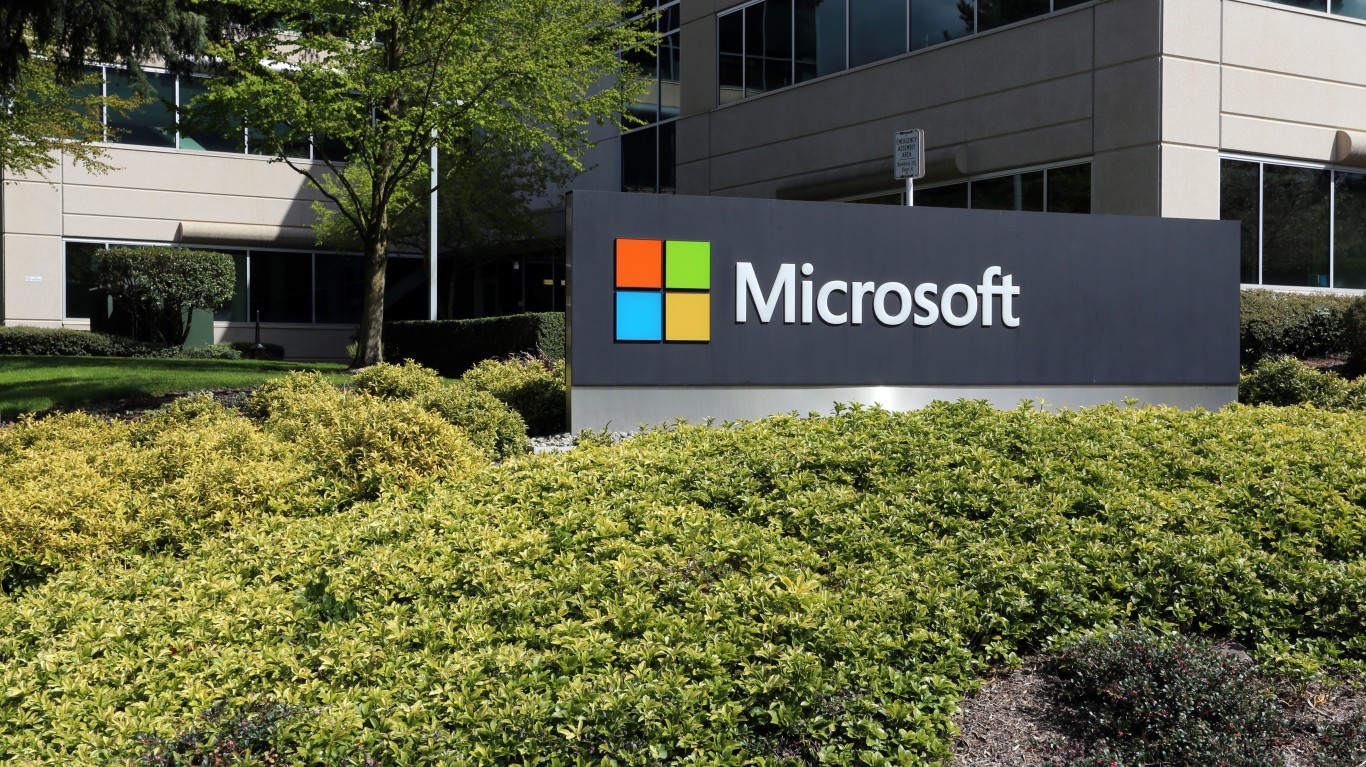Investing
Prediction: 3 Boring Stocks That'll Be Worth More Than Nvidia by 2030

Published:

24/7 Wall St. Insights
Following the release of ChatGPT in late 2022, interest in artificial intelligence (AI) stocks soared. Perhaps no stock saw a greater benefit from the enthusiasm than Nvidia Corp. (NASDAQ: NVDA). The semiconductor maker was best known for its gaming graphics processing units. But the excitement over AI and Nvidia’s AI hardware and software drove its share price into the stratosphere. Between November 2022 and this past June, the share price gained about 830%. The company completed a ten-for-one forward stock split in June, but it was the revenue outlook in the second-quarter report that spooked investors and analysts. The stock’s momentum came to a halt, and the share price has bounced between about $99 and $135 afterward.
The question is whether the stock has plateaued or will resume its upward trajectory, as a recent bump suggests. Or, looking at the bigger picture, has the enthusiasm for AI waned overall? The more pessimistically inclined may already be looking to move on to the next big thing. Here we look at three stocks that, though less exciting in terms of investor fervor, could end up being bigger than Nvidia by 2030.

Formerly a FAANG stock and now one of the Magnificent 7 along with Nvidia, Amazon currently has a market cap of over a trillion dollars less than that of Nvidia. The tech conglomerate’s AI initiatives are focused on its Amazon Web Services business, but most of its revenue still comes from retail sales and seller services. To be fair, not only does Amazon stock have to keep up its projected momentum, but Nvidia has to have stalled for good or at least lost some of its mojo over the next few years for Amazon to top it.
Among Amazon’s many initiatives is Project Kuiper, which is meant to rival SpaceX’s Starlink satellite system. The company’s recent Prime Day sales event was a success, and the stock is a popular growth pick among hedge funds. Its gain since the beginning of the year is better than that of the Dow Jones industrial average, and its shares hit an all-time high above $200 this past summer. Of 47 analysts who follow the stock, 43 recommend buying shares, with 15 of them having a Strong Buy rating.

If Nvidia’s momentum does resume at its previous pace, it and Alphabet are likely to have quite similar market caps by 2030. Although Alphabet also has a piece of the AI pie, the tech conglomerate makes most of its revenue from advertising. And there is always the overhang that critics would like the company to be broken up into parts.
The company appointed a new chief financial officer earlier in the summer, and more recently Waymo, its autonomous driving unit, entered a multiyear agreement with Hyundai. The stock has outperformed the Dow since the start of the year, and here too Wall Street sees strong upside potential. Of 43 analysts who follow the stock, only five of them do not recommend buying shares.

Even if this one and Nvidia maintain their momentum, Microsoft is likely to come out on top in terms of market cap. The Washington-based software giant’s AI efforts include a stake in OpenAI, the maker of ChatGPT. But it is still better known as a provider of its operating system, web browser, and various other productivity software and services.
The stock remains a favorite with hedge funds, and Microsoft’s CEO recently said he keeps in regular contact with CEOs of a variety of other companies. For much of this year, shares performed largely in line with the Nasdaq but have fallen short in the past couple of weeks. But analysts are optimistic about the upside potential and they have a consensus recommendation to buy shares.

Renowned investor Warren Buffett is often seen as a proponent of investing in boring stocks. As an investor, he is not much interested in whatever is the next big trend or industry. Rather, he favors consumer staples, financial services, and others in industries that tend to change at a slower pace. Typical Buffett stocks are in easy-to-understand businesses with strong management and predictable cash flows. Those are stocks that investors can comfortably hold for the long haul.
Prediction: Meta Will Make Billions for Nvidia
The thought of burdening your family with a financial disaster is most Americans’ nightmare. However, recent studies show that over 100 million Americans still don’t have proper life insurance in the event they pass away.
Life insurance can bring peace of mind – ensuring your loved ones are safeguarded against unforeseen expenses and debts. With premiums often lower than expected and a variety of plans tailored to different life stages and health conditions, securing a policy is more accessible than ever.
A quick, no-obligation quote can provide valuable insight into what’s available and what might best suit your family’s needs. Life insurance is a simple step you can take today to help secure peace of mind for your loved ones tomorrow.
Click here to learn how to get a quote in just a few minutes.
Thank you for reading! Have some feedback for us?
Contact the 24/7 Wall St. editorial team.